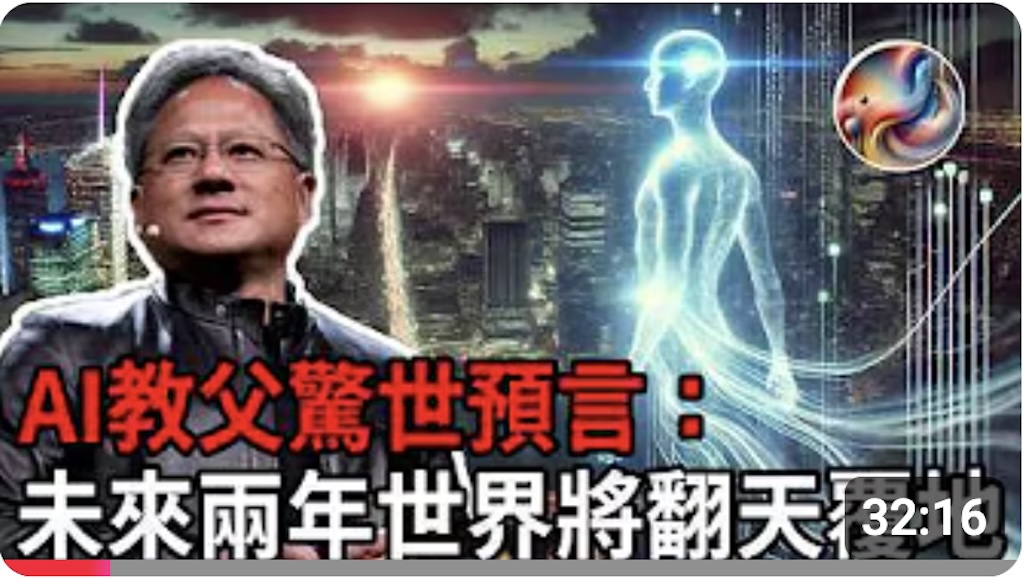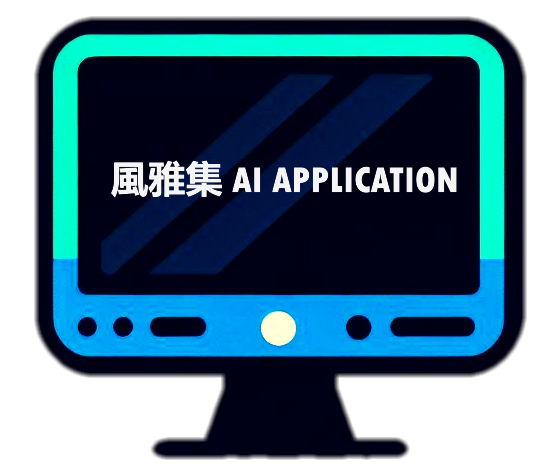
黃仁勳如何再度神準預測?
How can Jensen Huang, CEO of NVIDIA Corporation, predict accurately again?
Sure! Here is a comprehensive summary of the YouTube transcript, section by section:
Introduction (00:00 – 01:05) The video begins with a bold prediction by Jensen Huang, known as the “AI Godfather,” who claims that the world will undergo dramatic changes within the next two years, with Taiwan playing a crucial role in this transformation. The introduction sets the stage for exploring Huang’s past predictions and their accuracy1.
Early Life and Career (01:05 – 02:12) Jensen Huang’s journey starts in southern Taiwan, where he was born into a humble family. He later moved to the United States, excelling in his studies and eventually founding NVIDIA in 1993. Initially focused on graphics processing units (GPUs) for gaming, Huang foresaw the potential of GPUs in other fields, particularly artificial intelligence2.
Rise of AI and NVIDIA (02:12 – 04:20) Huang’s vision extended beyond gaming, recognizing the powerful parallel computing capabilities of GPUs. The turning point came in 2012 with the advent of deep learning, exemplified by the AlexNet model, which relied on NVIDIA’s GPUs for its groundbreaking performance in image recognition3.
AI Predictions and Impact (04:20 – 06:31) Huang’s predictions about AI’s future have been remarkably accurate. He likened the current AI development phase to the “iPhone moment,” where AI is becoming a revolutionary technology accessible to the masses. He also predicted that everyone would have their own AI tutor or assistant, enhancing learning and productivity4.
AI in Education and Professional Fields (06:31 – 08:39) Huang envisions a future where AI tutors assist students and professionals alike. He believes that within five years, AI will be able to pass human exams, including professional certifications like the bar exam and medical licensing exams5.
Embodied AI and Robotics (08:39 – 10:53) Huang predicts that the next wave of AI will involve embodied AI, where AI systems are integrated into physical devices like autonomous vehicles, robotic arms, and household robots. This integration will revolutionize industries such as manufacturing, logistics, and healthcare6.
AI-Generated Content (10:53 – 14:05) Huang foresees AI creating entire video games within five to ten years. This would involve AI generating game scenarios, artwork, dialogues, and even rules, transforming the gaming industry and allowing for highly personalized gaming experiences7.
AI’s Ubiquity and Economic Impact (14:05 – 17:23) Huang emphasizes that AI will permeate every industry, from healthcare and finance to agriculture and customer service. He reassures that the cost of developing AI will decrease as hardware technology advances, making AI more accessible and efficient8.
Human-AI Collaboration (17:23 – 20:37) Huang advocates for a collaborative relationship between humans and AI, where AI serves as a powerful tool to enhance human creativity and decision-making. He believes that AI will not replace humans but will complement their skills, leading to new job opportunities and improved productivity9.
Challenges and Ethical Considerations (20:37 – 23:52) Huang acknowledges the challenges and ethical concerns associated with AI, such as data privacy, decision-making transparency, and the potential misuse of technologies like deepfakes. He supports the development of regulations to ensure AI benefits humanity10.
Taiwan’s Role in AI Development (23:52 – 31:23) Taiwan plays a pivotal role in the AI revolution, providing essential hardware and support. Companies like TSMC manufacture advanced chips crucial for AI development. Taiwan’s educational institutions and tech companies are also contributing to AI research and applications11.
Conclusion (31:23 – End) The video concludes by highlighting the importance of imagination and innovation in driving technological progress. Huang’s predictions, while bold, inspire confidence in the transformative potential of AI. Taiwan’s contributions to AI development are celebrated, emphasizing the collaborative effort required to realize the future of AI12.
I hope this summary helps! If you have any specific questions or need further details, feel free to ask. 😊
當然可以!以下是該內容的繁體中文翻譯:
介紹 (00:00 – 01:05) 影片以被稱為“AI教父”的黃仁勳的大胆預測開始,他聲稱世界將在未來兩年內發生劇變,而台灣將在這一轉變中扮演關鍵角色。介紹部分為探索黃仁勳過去的預測及其準確性奠定了基礎。
早期生活和職業生涯 (01:05 – 02:12) 黃仁勳的旅程始於台灣南部,他出生於一個謙遜的家庭。後來他移居美國,在學業上表現出色,並於1993年創立了NVIDIA。最初專注於遊戲的圖形處理單元(GPU),黃仁勳預見了GPU在其他領域,特別是人工智能中的潛力。
AI和NVIDIA的崛起 (02:12 – 04:20) 黃仁勳的視野超越了遊戲,認識到GPU強大的並行計算能力。轉折點出現在2012年,隨著深度學習的出現,以AlexNet模型為例,該模型依賴於NVIDIA的GPU在圖像識別方面取得了突破性表現。
AI預測及其影響 (04:20 – 06:31) 黃仁勳對AI未來的預測非常準確。他將當前的AI發展階段比作“iPhone時刻”,AI正在成為一項革命性技術,普及到大眾。他還預測每個人都會有自己的AI導師或助手,提升學習和生產力。
AI在教育和專業領域 (06:31 – 08:39) 黃仁勳設想了一個未來,AI導師將幫助學生和專業人士。他相信在五年內,AI將能夠通過人類考試,包括專業認證如律師考試和醫療執照考試。
具體化AI和機器人技術 (08:39 – 10:53) 黃仁勳預測下一波AI將涉及具體化AI,AI系統將集成到實體設備中,如自動駕駛車輛、機器臂和家用機器人。這種集成將徹底改變製造、物流和醫療等行業。
AI生成內容 (10:53 – 14:05) 黃仁勳預見AI在五到十年內創建整個視頻遊戲。這將涉及AI生成遊戲場景、藝術作品、對話甚至規則,改變遊戲行業,並允許高度個性化的遊戲體驗。
AI的普及性和經濟影響 (14:05 – 17:23) 黃仁勳強調AI將滲透到每個行業,從醫療和金融到農業和客戶服務。他保證隨著硬件技術的進步,開發AI的成本將降低,使AI更具可及性和效率。
人類與AI的合作 (17:23 – 20:37) 黃仁勳倡導人類與AI之間的合作關係,AI作為一種強大的工具來增強人類的創造力和決策能力。他認為AI不會取代人類,而是會補充他們的技能,帶來新的工作機會和提高生產力。
挑戰和倫理考量 (20:37 – 23:52) 黃仁勳承認與AI相關的挑戰和倫理問題,如數據隱私、決策透明度和技術濫用的潛在風險。他支持制定法規以確保AI造福人類。
台灣在AI發展中的角色 (23:52 – 31:23) 台灣在AI革命中扮演著關鍵角色,提供必要的硬件和支持。像台積電這樣的公司製造對AI發展至關重要的先進芯片。台灣的教育機構和科技公司也在為AI研究和應用做出貢獻。
結論 (31:23 – 結束) 影片以強調想像力和創新在推動技術進步中的重要性作結。黃仁勳的預測雖然大膽,但激發了對AI變革潛力的信心。台灣對AI發展的貢獻受到讚揚,強調了實現AI未來所需的合作努力。
希望這個翻譯對你有幫助!如果你有任何具體問題或需要進一步的詳細信息,請隨時告訴我。😊


